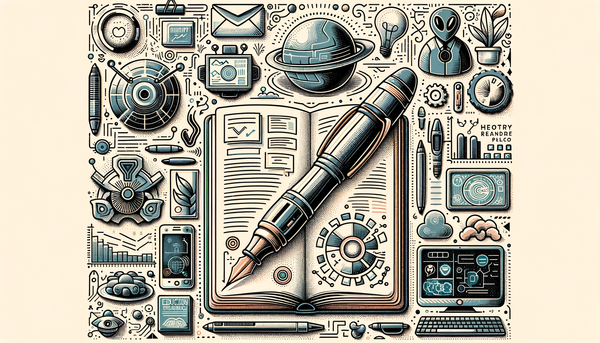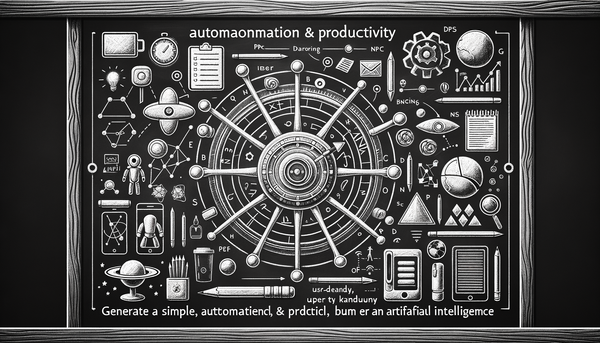AI: The Complex Terrain of Innovation and Ethics

At the Capitol Theatre in Yakima, a blend of humor, decades of technological insight, and unequivocal truth set the tone for conversations on AI—illuminating breakthroughs beneath the waves, financial protections on the digital frontier, warnings for our workforce, and ethical dilemmas that force us to re‐examine technology’s boundaries.
The Many Faces of AI: From Town Halls to Coral Reefs
David Pogue’s lively discourse at the Yakima Town Hall—affectionately dubbed his “Pogue-cation”—served as a charismatic opener to the current AI narrative. Pogue, a CBS veteran known for his clear-eyed approach on CBS Sunday Morning, combined humor with a sage reminder: technology, while transformative, must never become an arena for unnecessary social stigmas. “If you don’t need it, you don’t need it,” he remarked, echoing a sentiment that resonates with both technophiles and skeptics.
This vibrant blend of levity and insight has set the stage for a far-reaching discussion on how AI is reshaping every corner of our society—from the way we digest news to how we understand marine life, financial crimes, and even our own cognitive processes. While some voices laud the beauty of progress, others urge caution, highlighting ethical challenges and the socio-economic risks if technological advances are not inclusively managed.
Deciphering the Ocean’s Melody: AI in Marine Biology
In the fascinating underwater ecosystems of coral reefs, scientists have embraced AI with as much wonder as explorers once did uncharted territory on land. A recent breakthrough saw a smart acoustic system, powered by neural networks, deployed to intercept and decode the “fish calls” of reef inhabitants. At first blush, the idea might seem whimsical—a system listening to the chatter of clownfish—but it is in fact a significant leap forward in marine biology.
Traditionally, researchers spent countless hours manually analyzing audio data, piecing together the complex symphony of underwater life. Now, with the enhanced detection capabilities of AI, the process is accelerated up to 25 times faster. The technology not only identifies known sounds but is agile enough to adapt, cataloging previously unheard calls in real-time using onboard cameras that match sounds to their visual counterparts.
"The holy grail of fish communication research is finally within our reach," said lead scientist Seth McCammon, a sentiment that encapsulates the excitement in the room.
This technological marvel, integrated into the autonomous underwater vehicle CUREE, is poised to revolutionize how we monitor marine populations. By enhancing our capability to track species and understand the ecological dynamics of reefs, such AI innovations promise invaluable data for conservation efforts. Just as a seasoned naturalist uses every sense to connect with nature, this new AI system uses deep learning to interpret a language that has long remained elusive.
With several studies and pilot projects already underway, it’s clear that AI is more than a buzzword in marine circles—it’s emerging as a vital research tool. This breakthrough will likely lead us to even more advanced marine monitoring systems, where sound and vision work in tandem to guide conservation efforts. For more on the ethical and ecological implications of such innovations, consider exploring our detailed analysis on future AI challenges and ethical dilemmas featured on AI.Biz.
Guarding the Digital Fort: AI Against Financial Crime
In another realm where AI’s transformative power is evident, Oracle Financial Services has embarked on a mission to combat financial crime using AI agents. The recently unveiled Investigation Hub Cloud Service, infused with advanced generative AI, takes on the monotonous yet critical tasks of data collection, analysis, and narrative generation. This allows human analysts to focus more intently on deciphering the clues that truly matter.
With the surge in financial schemes and increasingly sophisticated regulatory pressures, the traditional methods of manual, error-prone investigations have been stretched to their limits. Oracle’s new innovation promises a shift toward more efficient and reliable scrutiny. Financial firms can now identify suspicious activities, generate insights, and produce detailed investigative narratives within a fraction of the time it once needed.
The approach mirrors what many in the field describe as a “groundbreaking shift” in financial crime investigation. In a world where billions of transactions occur daily, speeding up these processes is not only beneficial—it’s essential. This AI integration into financial oversight underscores a broader trend, wherein automated systems support high-stakes industries with unparalleled precision.
As the digital economy expands, tools such as these provide a much-needed impetus for regulatory bodies to adopt smarter solutions. They also serve as a counterbalance to the ever-evolving methods of financial fraud. Readers interested in the competitive landscape of corporate AI advancements might find additional compelling insights in our article on corporate AI trends and investments.
Workforce Transformations and Societal Shifts: The Price of Progress
While many celebrate AI as an industrial marvel, there’s a shadow that looms large over the workforce. At the recent CONVERGE LIVE event in Singapore, John Hope Bryant, CEO of Operation HOPE, issued a solemn reminder: technological progress without inclusive growth leads to societal fractures. Drawing parallels to the transportation revolution of the 19th century, Bryant warned of the disruptive potential of AI if large segments of the population are left without the necessary skills to adapt.
According to Bryant, failing to upskill the workforce to match the rapid evolution of AI might not only exacerbate economic inequality but also create fertile grounds for social unrest. With job elimination risks especially high for those already struggling on the economic margins, his words inspire both alarm and a call to proactive change.
"If you don't bring people with you, they'll fight you, or worse." — John Hope Bryant
Such complexity in technological integration reflects the necessity of strategic government investments in AI education and training programs. Proposals including tax incentives for companies that implement robust internship and upskilling programs suggest practical pathways to easing the impending tide of job displacement. This balanced approach is essential if society is to harness AI for collective benefit rather than division.
The cautionary tone in Bryant’s address weaves into a larger discussion regarding the ethical implications of automation. Balancing efficiency with human-centric growth remains one of the most significant challenges on our tech-driven horizon. For readers curious about how emerging AI efforts are planning to mitigate such social divides, our feature on the rise of agentic AI provides additional insights.
Ethical Boundaries and Dark Uses: The Troubling Cases at the Intersection of Technology and Morality
Among the many narratives that AI is writing for our era, some are deeply unsettling. A recent case in Corinth, Mississippi, has cast a sharp light on the potential dark uses of AI. Former teacher Wilson Jones has been arrested on charges related to the creation of explicit AI-generated content depicting minors—an incident that shakes the public’s trust in the limitations placed on this powerful technology.
In an environment where AI can synthesize realistic images and videos with alarming ease, the misuse of such technology for exploitative purposes forces a reevaluation of regulatory frameworks and ethical standards. Although there is no denying the positive potential of AI in a vast array of fields, this case underscores the urgent need for robust safeguards and constant vigilance.
The systematic misuse of AI in this context draws attention to how technological innovations, when placed in the wrong hands, can lead to severe societal harm. The incident has prompted school districts, lawmakers, and technologists to collaborate on fortifying digital oversight, while also initiating deeper debates on how best to balance creativity with control. Such conversations are essential to ensure that in our race toward progress, we do not leave behind the systems that preserve human dignity.
While cases like these remain a stark reminder of AI's potential for abuse, they also catalyze efforts across industry and government to bolster ethical guidelines. For broader contextual discussions on how AI is shaping both positive change and cautionary tales, our ongoing series on AI’s evolving ethical challenges can provide a comprehensive overview.
From Neural Networks to a Human Touch: Insights from Geoffrey Hinton
No conversation on artificial intelligence would be complete without reflecting on its potential to mirror, and perhaps even surpass, our own human cognition. In an engaging interview with The Economist, Geoffrey Hinton, often referred to as the “godfather of AI,” shared his reflections on the evolution of neural networks and the shifting paradigms of machine intelligence.
Awarded the Nobel Prize in Physics not long ago in recognition of his pioneering work, Hinton’s insights are as captivating as they are nuanced. He outlined how AI systems have evolved from simple algorithms into sophisticated networks that exhibit decision-making processes akin to human reasoning. Such advancements blur the line between human and artificial thought, prompting profound questions about what it means to be truly intelligent.
Hinton’s discussion resonated with the idea that AI is gradually developing a “human touch.” His reflections invite us to reframe our understanding of intelligence, moving from a binary notion of organic versus fabricated cognition to a more fluid understanding where artificial systems can complement and even enhance human capabilities.
In a world where even renowned experts such as Fei-Fei Li remind us that “AI is everywhere. It's not that big, scary thing in the future. AI is here with us,” the insights from Hinton bridge the gap between awe and everyday application. They challenge us to rethink our fundamental assumptions about learning, creativity, and cognition.
Given the transformative nature of these innovations, it is clear that AI is not just a set of algorithms but an evolving companion in our own journey toward understanding the world. Those looking for more discussions on where AI is headed in relation to human endeavors might also appreciate our sector-specific commentary in Charting the Future of AI in Various Sectors.
Connecting the Dots: A Broader Look at AI’s Transformative Impact
When we interlace these disparate threads—from Pogue’s light-hearted but incisive observations to the deep dives into technological breakthroughs in marine research, financial security, workforce evolution, and even the sobering ethical dilemmas—we begin to see an expansive portrait of AI’s dual nature. On one hand, it stands as an enabler of remarkable innovation and efficiency; on the other, it necessitates vigilant oversight and an unwavering commitment to humanistic values.
It is this contrast that shapes the discourse in our modern digital age. Consider the words of an iconic film narrative: “The machines rose from the ashes of the nuclear fire.” (Terminator 2: Judgment Day) Though a work of fiction, the allegory rings true today, reminding us that technology’s relentless evolution demands responsibility and ethical fortitude. The pace at which AI is developing can be both breathtaking and unsettling, challenging us to ask not only how far we can go, but also what kind of future we want to build.
In the business realm, Adobe’s recent performance and forecast—despite beating first-quarter revenue estimates—has ignited debates about the monetization potential of AI. This juxtaposition of commercial success against the backdrop of ethical debates and workforce anxieties illustrates the complexity of our era. Business leaders and technologists alike are tasked with nurturing innovation while simultaneously safeguarding societal interests.
Across industries, there is a growing recognition that success in the age of AI is not just measured by financial metrics, but also by our ability to inclusively harness its power. It requires a symbiotic blend of risk-taking and caution—embracing change without losing sight of its human implications. This balance is echoed in diverse sectors, whether during town hall discussions, state-of-the-art marine explorations, or high-stakes financial crime investigations.
Personally, I find that these narratives compel us to remain agile and open-minded. They implore us to bridge gaps between technology and society, ensuring that as AI evolves we do so with both innovation and integrity. By fostering dialogue that spans from breakthrough scientific research to real-world ethical challenges, we can collectively navigate this transformative era.
Reflections on Ethical Oversight and Social Responsibility
One of the perennial themes that surface in discussions about AI is the overarching need for ethical oversight. The missteps—inadvertent or deliberate—that have occurred in sectors as delicate as education highlight the urgent necessity for robust regulatory frameworks. When technology can be manipulated to create harmful content, society must respond with measured, thoughtful policies that protect vulnerable groups without stifling innovation.
At the same time, voices from across the spectrum, including those of respected industry leaders and researchers, have been calling for strategies that include retraining, upskilling, and broad-based educational reforms. This ensures that the benefits of AI are shared widely and equitably, rather than concentrated among those already at the forefront. The conversation is not simply technical—it is intrinsically human.
Between groundbreaking financial safeguards, innovative research on natural ecosystems, and honest discussions about the cost of progress, the future of AI demands collaborative effort and vigilant stewardship. Governments, educators, business leaders, and technologists must all work in tandem to oversee this evolution.
In the words of Evelyn Caster from the film Transcendence, “The question is not whether we will survive this but what kind of world we want to survive in.” These words resonate with the ethos of responsible innovation—the deep understanding that every technological advancement carries within it the power to reshape not only industries, but the very fabric of our society.
Looking Ahead: Embracing the Era of Augmented Intelligence
As we wrap this exploration of AI’s many dimensions, it becomes clear that the technology is not a singular monolith, but a complex tapestry of innovations, risks, and opportunities. From the vivid recollections at a Yakima Town Hall to the intricate neural networks deciphering the calls of underwater life, AI continues to redefine our paradigms. Innovations in financial security, as demonstrated by Oracle’s AI agents, serve as a bulwark against modern threats. Meanwhile, cautionary voices remind us of the pressing need for ethical governance in a time when the potential for misuse looms large.
As an observer of these unfolding developments, I am filled with both awe and a measured sense of responsibility. The story of AI is rapidly being written, chapter by chapter, in boardrooms, laboratories, classrooms, and even at community gatherings. It is a narrative that challenges us to be stewards not only of technology but of the values that define us.
If you are intrigued by these intricate interplays between innovation and ethics, consider exploring our additional pieces on AI.Biz. Our ongoing series—ranging from Future AI Challenges and Ethical Dilemmas to Corporate AI Trends and The Rise of Agentic AI—provides in-depth updates and thoughtful analysis that will help you grasp both the promise and the perils of this unfolding revolution.
Further Readings
For more detailed examinations and continuous updates on the diverse impacts of artificial intelligence, check out these related articles:
- CBS correspondent David Pogue shares insights on AI at Capitol Theatre event
- Smart acoustic system uses AI to search for "fish calls" in coral reefs
- Oracle Brings AI Agents to the Fight Against Financial Crime
- Operation HOPE CEO issues warning on AI’s societal impacts
- AI is more human than you think—An interview with Geoffrey Hinton
- Charting the Future of AI in Various Sectors



